Description
Garry’s coffee special features three of our more interesting coffees. Higher acidity, interesting processing, this bundle is leaning towards more exotic coffee tones.
*Bundles change over time. You will get the listed coffees at the time of order. *
A pound each of:
Mexican Grupo Terruño Nayarita – Natural Processed
This is a co-op that holds a special place in our hearts. This coffee is from 100% traceable, directly traded micro-lots. Each bag is uniquely identified with a bar code and a serial number which can be used to see everything behind its production, click here to check it out. Gathered around an extinct volcano, Cerro San Juan, a committed group of 260 cooperative coffee farmers are working together to produce arguably the best coffee in Mexico. Terruño Nayarita coffees come from heirloom trees. The word ‘Terruño’ means ‘homestead’. These are farmers that take great pride in their coffee. This is the top screen-size/grade from the Terruño Nayarita Co-op.
San Cristobal Coffee Importers takes great care to find and produce excellent coffee, making sure farmers use safe, sustainable shade techniques and provide a fair wage to the workers. Check out their webpage:
San Cristobal
Tasting Notes:
Always one of our favorite Mexican coffees. Good from light to dark. Although Natural processed, this is not a fruit bomb like many other natural processed coffees, has slightly fruity overtones that balance great with some citric, malt and nutty undertones. Its a little fuller bodied cup than most Terruno lots with above average sweetness. Lighter roasting will have noticeable citric crispness upfront and will accentuate the fruitiness and citric but show a little herbal. Medium roasts balance the tones nicely and smooth out the citric tones. Darker roasts turn more chocolaty, gets pretty roasty and smoky, retains a sweet edge and shows hints of fruitiness as the cup cools. A good daily drinker across the roast levels.
Roasting Notes:
A nice medium roast is the way to go, can lean it a little lighter or darker depending on personal taste. Roasts pretty even for a natural but you will see a couple outliers, it is a bit higher chaff, we still put it in the easier to roast category.
El Salvador Cerro Las Ranas Honey Processed
A blast from the past! A great year for Cerro Las Ranas. Years ago we found this coffee and fell in love, it was really cutting edge with its honey processing, an early adapter on what is now one of coffees hottest trends.
Cerro Las Ranas (the Hill of Frogs) coffee is named after the farm’s lagoon that is populated by thousands of frogs located in Apaneca within the department of Ahuachapan, El Salvador.
The coffee is produced by JASAL, a family owned operation where Jose Antonio Salaverria and his sons take great pride in their meticulous attention to detail, from year-round farm management to quality control in the cupping lab, and everything in between. In the pulped natural process (also called a honey process), Jose pulps perfectly ripened cherries and then dries the coffee beans, still covered in mucilage, on clay patios while constantly turning the beans to ensure even drying. This process provides a more consistent product than a full natural while still bringing some of the great attributes of a natural processed to the cup profile.
Tasting Notes: A lovely slightly-exotic daily drinker. Light to medium roasts are preferred with our favorite roast being right in the middle of the cracks. Lighter roasts have a hint of floral/citric acidity with just a touch of sweet and delicate red fruit coming from the honey processing. A bit on the nutty/chocolaty side for its balance, starts as a dry nutty at very light roasts, turns more chocolaty as the roast gets darker.
A little front loaded with the more acidic and fruity tones at traditional light roasts. Medium roasts have better balance between light an dark tones cutting out some acidity; smooth, rich and sweet edged. Dark roast loses the more exotic acidity and fruity edge but turns very thick, nutty, semi-sweet chocolaty with smoky accents.
Roasting Notes: A little higher chaff and a bit uneven roasting compared to a nice fully washed coffee. Nothing too challenging. We would recommend avoiding both super light and super dark roasts, they will either put a sour edge to the cup or a bitter edge. Light to medium roasting with this cup is where it will shine assuming you like a crisper cup. Close but not touching 2nd crack is ideal for smoothness and body.
Tanzanian Ngorongoro – Finagro Gaia Estate – Kent Natural Processed
A lovely natural processed coffee. Fruity, floral, sweet and chocolaty. Unlike the anaerobic natural, this cup will contain pretty normal natural processed tones. Far less wild but just as tasty.
A wonderful Tanzania Natural. Naturals are not common out of Tanzania, especially ones this good! Reminds me of a Burundi Natural. Fruit forward at lighter roasts but not the dominate tone, pulls some great darker tone balance with some stout like chocolate and spice.
Gaia Farm is a 620-hectare family-owned estate located in the Karatu district of Tanzania. Gaia is one of two farms managed by Neel and Kavita Vohora, siblings, multi-generation coffee growers, and agricultural entrepreneurs in this extremely unique part of East Africa. Both farms are cultivated along the rim of the Ngorongoro Crater, the largest unbroken caldera in the world and a breathtakingly scenic landscape of escarpments and fertile open range that has been a UNESCO World Heritage site since 1979.
Neel and Kavita are third-generation Tanzanians of Indian heritage, and their family has been in the Tanzanian coffee business since the end of the second World War. The family export business based in Arusha has more than 60 years experience in the country.
Tasting Notes: A tasty cup from light to dark! The best roast level will be personal taste preference. For those who enjoy a bit more fruit forward cup, the lighter roasts really pop the fruit tone out along with a hint of citric and silky smooth nutty/chocolate/herbal darker tones. With a more intense roast, the cup transforms into a chocolate-and-cocoa delight with smooth caramel sweetness, a cool hint of mint, and a delicate touch of pine and herbs—smooth and comforting. The profile overflows with green-mango brightness and ripe plum; a floral acidity reminiscent of mango or mandarin lifts the cup, while the cocoa base keeps it grounded.
Roasting Notes: An exceptionally versatile, forgiving bean—moderate chaff and uniform color make it easy to handle. Light roasts are more fruit forward and citric. Medium roasts highlight the mango spark, plum sweetness, and caramel-cocoa depth. Full City, just before second crack, offers the best balance: semi-sweet chocolate, mint-and-pine nuances, and a balanced floral acidity.
Kent is a coffee variety originating from southwestern India, derived from a Bourbon-related population. It was introduced to Tanzania in the 1920s and later spread to Uganda, becoming an important Arabica variety. The variety is believed to have descended from the first Bourbon seeds brought to India by Baba Budan in the 17th century. Kent was selected in 1911 from a single tree in Mysore, India, and widely planted there since the 1930s. It was initially known for its rust resistance, though that resistance has since diminished.
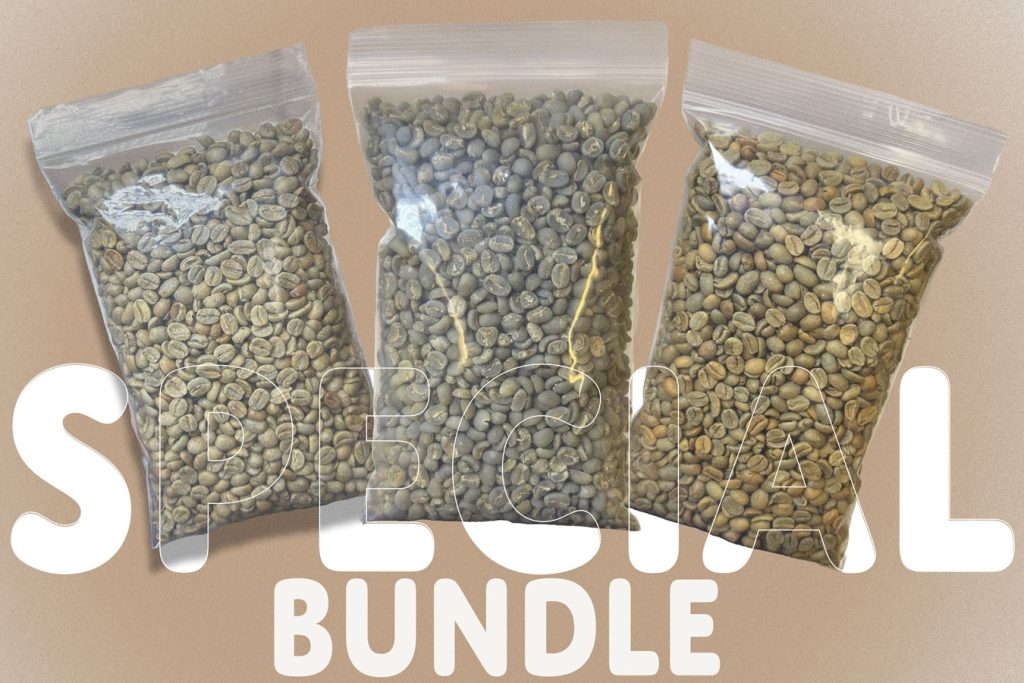
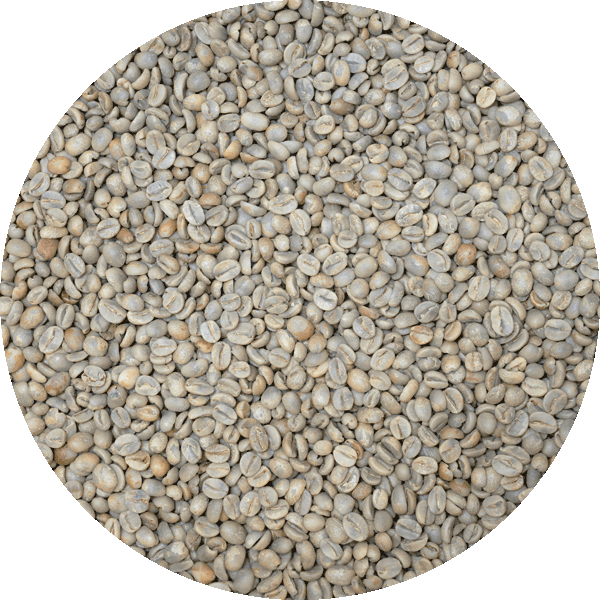
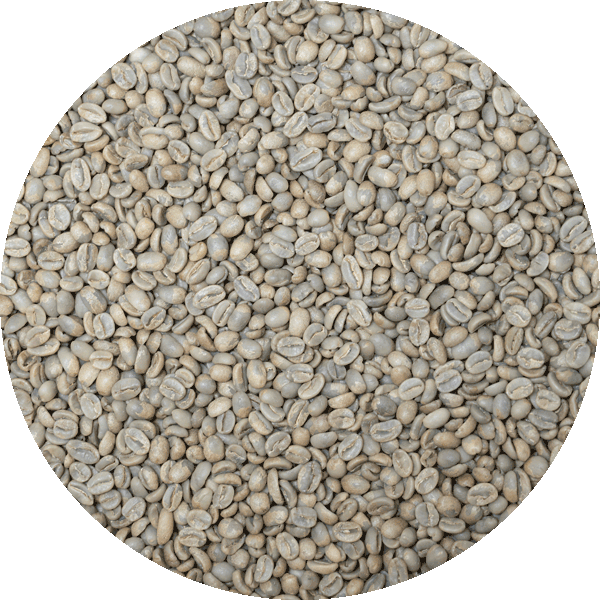
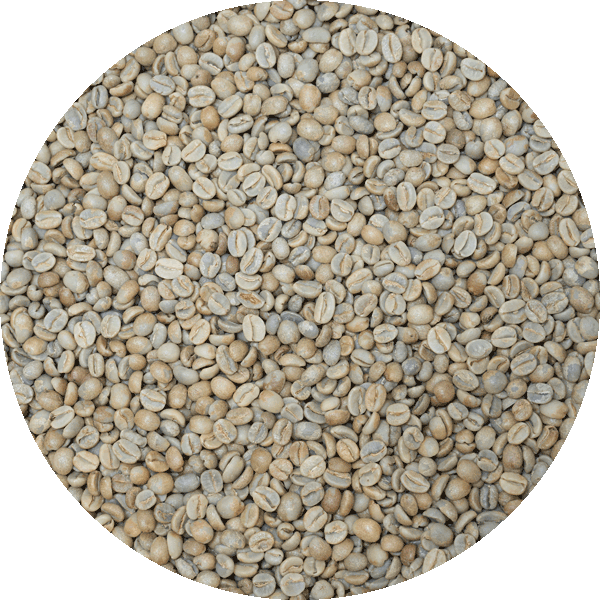
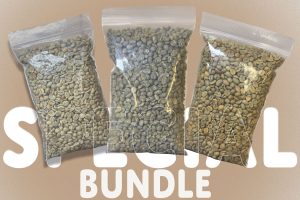
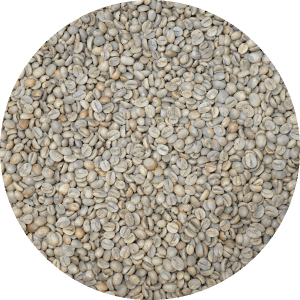
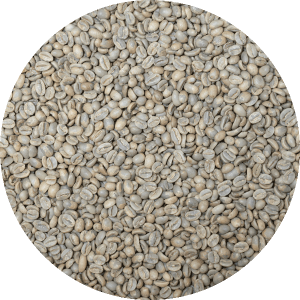
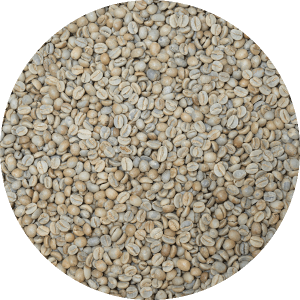
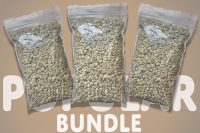
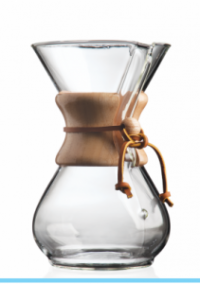
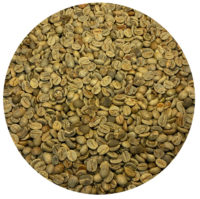
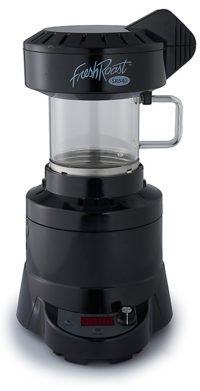

Reviews
There are no reviews yet.